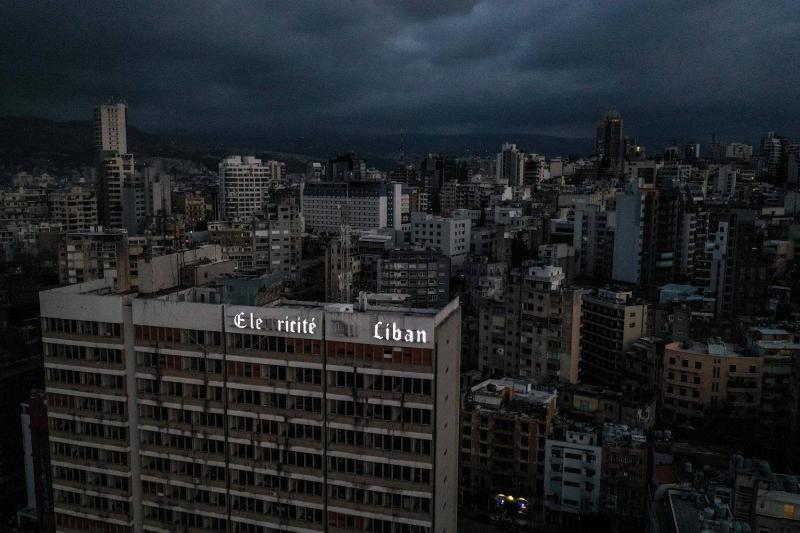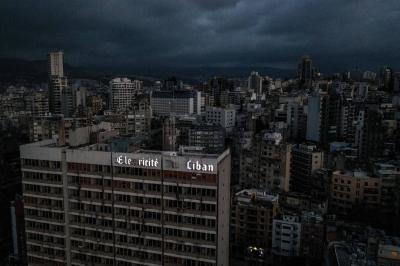"Promises are mere illusions," this is the state of Lebanese citizens regarding electricity for many years. The promises began with the vow of providing 24/24 service, which remained an impossible dream, culminating in last year's situation of zero supply for most days of the year, and at best, providing an hour or two during the day. Expert in the electricity sector, engineer Mohammad Bissbous, stated that "what is happening in the electricity file is a repetition of the same empty promises without any scientific documentation or reforms; rather, these are promises for public consumption, nothing more and nothing less. These tired promises should have been accompanied by a roadmap to come to light, in addition to starting to implement the reform items that the World Bank mentioned multiple times in its reports. The roadmap for reforming the electricity sector is the mandatory passage for the citizen to enjoy a minimum of electricity hours at a reasonable and objective cost."
Bissbous noted, in an interview with MTV, that "everything said this year is a repeat of what was said in previous years, and the constant justification for failing these promises has been that the main reason is the issue of tariff support, this distorted and falsified nomenclature, because the tariff of Electricité du Liban has been fixed since the nineties but was not supported." Regarding the causes that led to this phase, he observed that "the Ministry of Energy has stripped Electricité du Liban of all its powers and the minimum of financial and moral independence, turning it into a department within the ministry. Had it implemented the required reforms, there would not have been a sector of private generators in the country." He added, "The promises followed by failures began in 2008, repeating periodically with only changes in form and the title of the plan."
Bissbous reminded that "in 2019, Minister Nada Boustani launched a plan to reform the energy sector and officially acknowledged for the first time that technical and non-technical waste reached about 34 percent, noting that the World Bank in all its reports stated that the total of both wastes is no less than 40 percent. But this was a positive step in terms of correctly diagnosing the disease to be able to treat it," asking, "This plan that the Cabinet approved, what has been implemented from it? Unfortunately, what has been executed is zero. After Boustani promised to reduce technical and non-technical waste each year until it reached 11 percent within five years, this waste increased from 40 to 55 percent last year."
Among what the electricity sector witnessed in 2022 was a tariff increase, even though the World Bank stipulated in a report in 2018 that electricity tariffs should not be raised before reducing technical and non-technical waste to its lowest limits, which is a basic principle. Increasing revenues in this reality through pumping money or raising tariffs will lead to raising waste, as Bissbous considers.
It should be noted that the tariff was raised before increasing the supply hours of electricity, contrary to what was promised to the Lebanese. This new tariff was approved separately and in a much complicated manner. The most significant question that accompanied the Lebanese this year was, "Where is the gas from Egypt and the energy from Jordan?" Bissbous responds that the World Bank simply will not finance the import of gas without implementing the required reforms, even if the issue is politicized to distort the truth.
After a long wait, the regulatory authority returned to the forefront, but this time distorted. Bissbous says, "Walid Fayad, under the pressure of donor entities, especially the World Bank, amended the law of the regulatory authority by defining the powers of its members in a manner contradicting Law 462, and he modified the number from 5 to 6 to align with the sectarian quota novelty. This confirms that they want an authority devoid of powers and to transform it into merely an advisory body." In conclusion, will Fayad's promises come to fruition in 2023? Bissbous responds: "If the current course that began in 2008 and still exists today continues, there will be no reform in the electricity sector in Lebanon. This sector has become a skeleton, and they are still gnawing at it. If the Ministry of Energy does not emerge from this guardianship, there will be no positive outcomes, even if limited in the foreseeable future. Not in 2023, nor in 2030, if we continue down this path."




